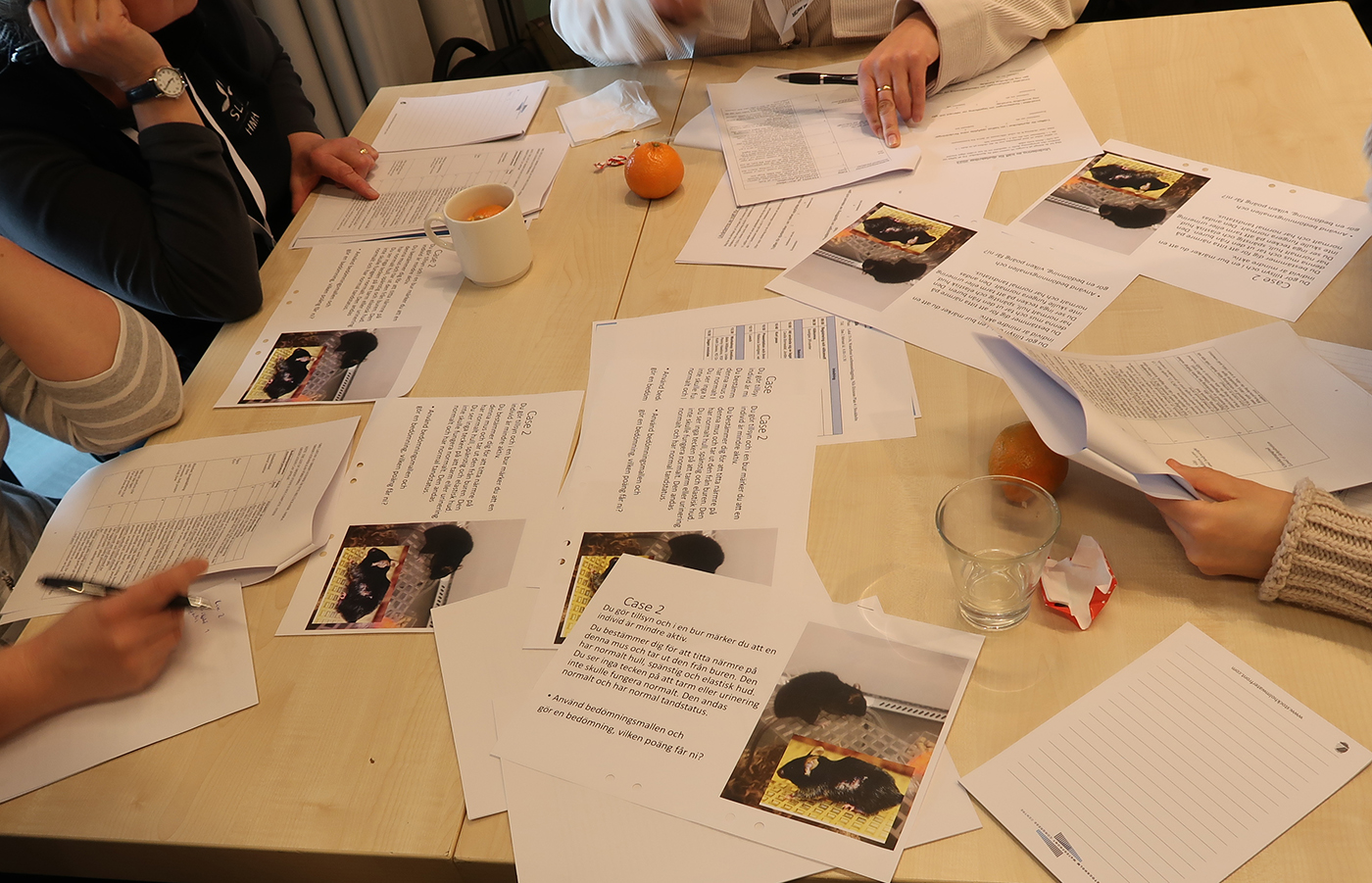- Startsida
- Languages
- English
- Swedish Board of Agriculture
- Animals
- The Swedish 3Rs Center
- News
- National meeting with animal technicians
Publiceringsdatum5 June 2023
National meeting with animal technicians
In February, the 3Rs Center arranged a national meeting for animal technicians. The aim of the meeting was to offer an opportunity for animal technicians to meet and to exchange work experience with colleagues, but also to offer them new knowledge.

The participants discuss health monitoring based on different cases.
As an animal technician, one is often daily faced with situations and decisions that may feel difficult, both emotionally and professionally. It is important to feel supported and to be able to perform your job with confidence, and with a good understanding of the current legislation when practising laboratory animal care. Therefore, we wanted to offer a day where animal technicians could come together and share their experiences.
Safe space
To create the feeling of a safe space for all attendees, we started the meeting by letting one of the team members at the 3Rs Center share one of her own difficult experiences from her work as a veterinarian. We wanted the sharing part to frame the program by showing the group it is a safe space to share.
As a starter, the Swedish Board of Agriculture gave a presentation on what the Swedish legislation says about research animals. The animal technicians took the chance to ask questions regarding situations they have come across in their work and how the legislation can help.
Emotional loading
The workshop about emotional loading was perhaps the most important part for the animal technicians. Three invited guests from the UK presented a very much appreciated segment on emotional loading. They all work with animal research questions in some extent and have experience of emotional loading, both from doing research and organizing workshops on the subject.
The focus was on scientific research, directed towards culture of care and emotions that may arise when working as an animal technician. The participants also got some practical tools to cope with their situation when things become too much to handle. The workshopping part let the participants reflect over three different scenarios they might come across in their daily work life and how to prevent and handle these different scenarios. The animal technicians that joined us bravely opened up and showed each other that no one is alone in their feelings, and that working in animal research is difficult for almost everyone.
Health monitoring
During the day we also offered a workshop, held by a laboratory animal veterinarian at the University of Lund, who demonstrated how health monitoring can be conducted, for example what to look for and think about depending on species, previous knowledge, whether the animals are in experiments or not and if you are doing a quick health assessment or a more thorough clinical evaluation.
The animal technicians were then given five different cases where they got to assess the health of different animals themselves. The species ranged from mouse, rat, rabbit, salamander and zebra fish and the different scenarios were presented as videos and pictures as well as text. To help with the assessments, participants were provided with different supportive materials such as support for assessment of ill health in rodents, designed by the expert group of the National Committee last year.
Response
The participants could afterwards score how well they perceived different aspects of the program. This evaluation will help us at the 3Rs Center to plan future activities for animal technicians.
The overall experience of the meeting was very positive and the wish to have more meetings like this in the future was clear. The most appreciated part of the day was the workshop about emotional loading, showing that this subject is important to animal technicians today. Many stated that they want to talk more about this and requested future activities within the subject.
Participants also expressed an interest to learn more about different topics that are relevant for them in their specific profession. They also want to be given more time to talk to other colleagues and share experiences and skills with each other.
Senast uppdaterad: